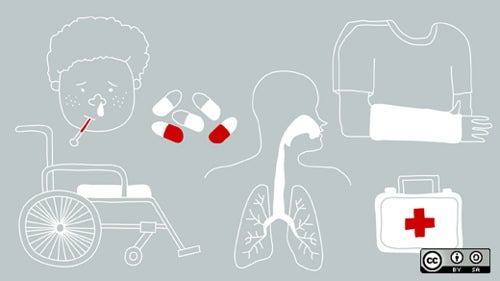Medical costs are rising dramatically. Few consumers would dispute that.
The U.S. government spent more than $2.3 trillion on healthcare in 2008, more than three times the $714 billion spent in 1990, and over eight times the $253 billion spent in 1980—all according to the Kaiser Family Foundation.
Since 1999, family premiums for employer-sponsored health coverage have increased by 131 percent, far outpacing inflation, and placing an increasing cost burden on workers. And with workers’ wages stagnating many simply can no longer afford medical care.
Who is to blame for these steeply rising costs?
Is it patients who fail to consider the cost consequences of poor eating habits and are unwilling to get off the sofa and exercise?
Is it physicians who neglect to practice evidence-based medicine and order excessive tests?
Is it hospitals that want to fill beds and aggressively market technology and treatments that patients often do not need? And then charge $5 for every baby aspirin?
Is it greedy insurance companies that care only about making money (lots of money) for their shareholders and senior executives?
Is it drug companies that hoard drug patents and aggressively market their most expensive drugs and then engage in “profit-sharing” with the doctors and hospitals that prescribe the drugs?
Is it lawyers that take a hefty percentage of any awards from malpractice suits and leave patients with only the amount the insurance company would have originally paid?
This is all exaggeration and oversimplification, of course, but the real question stands: How do we curb these rising costs? With so many things to consider, it's easy to get discouraged. How do we even get started?
Blue Cross and Blue Shield of North Carolina (BCBSNC) is trying to start this conversation with a newly launched website, Let's talk cost. They have challenged all groups in the healthcare system--including health insurers--to stop looking for scapegoats and start working together to rein in medical costs.
Commercials running in prime-time entice American Idol watchers to get online, and check out the site. The website is meant to get various industry entities, as well as everyday consumers, involved in a discussion that could ultimately help reign in medical costs. Company President Brad Wilson said the website will offer an "open forum where real unfiltered discussions can happen."
But, as the Raleigh News & Observer has reported, "Consumers are incredibly skeptical of Blue Cross." Adam Linker, a policy analyst at the N.C. Justice Center's Health Access Coalition, and a frequent critic of the insurer, went on to say, "Blue Cross is going to have to be part of the solution, but when [consumers] hear Blue Cross talking about cost control, they worry it means Blue Cross is trying to keep more money for itself."
The site is seeing a fair amount of activity so it remains to be seen whether consumers will accept the invitation to conversation from BCBSNC and jump in.
Because this is such a contentious conversation, it helps to insert a little humor to get people to consider different perspectives. The website has some pretty funny advertisements--featuring live goats--that portray the various scapegoats of the healthcare debate, including insurance companies, doctors, pharmaceutical companies, lawyers and individuals. My favorite is the Doctors commercial.
Humor aside, the message here is that everyone--including BCBSNC--must take responsibility for finding solutions. We must all work together to rein in medical costs so that we all can afford medical care.






5 Comments